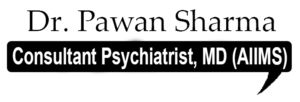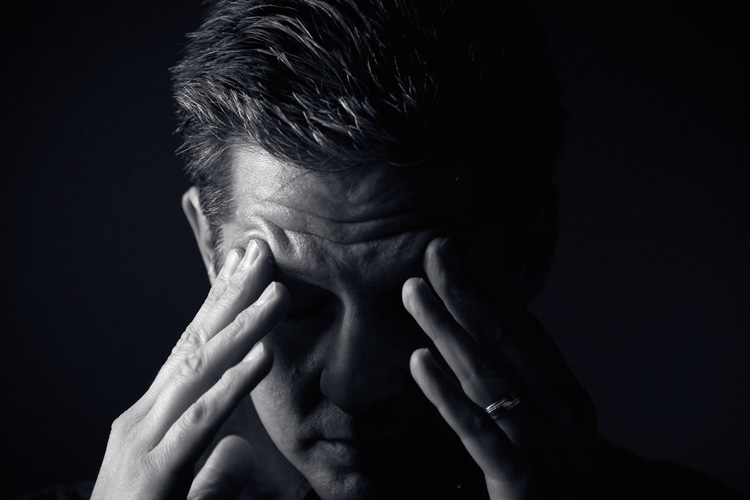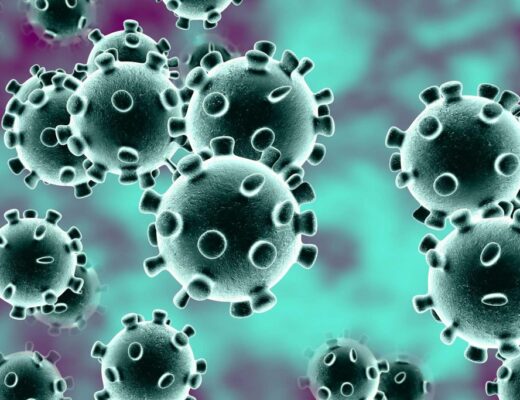Depression is a mood disorder that affects more than 264 million people worldwide as per the estimate of WHO. The clinical depression that we are talking about is very different from the English term “depression”. We use the word “depressed” during usual mood fluctuations and short-lived emotional responses to challenges in everyday life. But being sad at times or during a stressful situation is a part of normal day to day life. Depression, a disorder is a serious health condition. It can cause the affected person to suffer greatly and function poorly at work, at school, and in the family. At its worst, depression can lead to suicide.
Expertise and detailed assessment are needed to diagnose a person with depression. We, mental health experts follow the International Classification of Disease (ICD-10) criteria to make a diagnosis of depression. Depression is an episodic illness but individuals can have a single episode in a lifetime. When we look into the symptoms during an episode of depression; symptoms occur most of the day, nearly every day, and may include:
- Feelings of sadness, tearfulness, emptiness, or hopelessness
- Anger outbursts, irritability or frustration, even over small matters unlike usual self
- Loss of interest or pleasure in previously pleasurable or all normal activities, such as sex, hobbies or sports
- Sleep disturbances, including insomnia or sleeping too much
- Tiredness and lack of energy, so even simple tasks take extra effort
- Reduced appetite and weight loss or increased cravings for food and weight gain
- Anxiety, agitation, or restlessness
- Slowed thinking, speaking, or body movements
- Feelings of worthlessness or guilt, fixating on past failures or self-blame
- Trouble thinking, concentrating, making decisions, and remembering things
- Frequent or recurrent thoughts of death, suicidal thoughts, suicide attempts, or suicide
- Unexplained physical problems, such as back pain or headaches
If these constellations of symptoms occur for more than two weeks on a regular basis and cause marked socio-occupational dysfunction then a diagnosis of depression can be made. Usually, people have difficulty in work, school, social activities, or relationships with others. Some people may also feel generally miserable or unhappy without really knowing why. Though this illness causes marked distress it is completely curable.
The exact cause of depression is not yet known. As with many mental disorders, a variety of factors may be involved, such as biological differences, brain chemistry, neurotransmitters, neuro-circuits, hormones, inherited traits, etc. Also, the psychological makeup, stressful events, personality, social adversities, substance use, etc. play an important role in the etiology of depression.
Once a diagnosis of depression is made there are two modalities of treatment: for mild depression, usually psychotherapy (CBT) is done by mental health experts but for moderate and severe depression pharmacotherapy is a must. The most important thing to note in the pharmacological treatment of depression is the medications are not addictive and are not sleeping pills. It is important to note that in the initial stage of treatment medication for sleep might be given for a few weeks but the antidepressants are not sleeping tablets. Once the medication is started it takes around a week for them to start working and full remission can be achieved as early as four to six weeks. These medications are not for a lifetime. Usually, for the first episode, we give medications for 9-12 months, two years for two episodes and five years for three episodes, and so on. Like the medication given for other illnesses like hypertension or diabetes, the anti-depressants can have some side effects to a minority of patients and that can be managed over time.
Regarding the prevention of depression, there’s no sure way to prevent depression. However, strategies like stress management https://www.drpawan.org/stress-and-mental-illlness/, reaching out to family and friends, especially in times of crisis, balanced diet and exercise, proper sleep hygiene https://www.drpawan.org/sleep-and-sleep-hygiene/ might have a minor role. The most important thing to remember is to get treatment at the earliest sign of a problem to help prevent depression from worsening and getting long-term maintenance treatment to help prevent a relapse of symptoms.
Telling a person to snap out of depression or not to be depressed or do pleasurable activities instead of being depressed or telling that it’s just a state of mind are the worst thing you can do to a person having depression. The best thing is to assure them you are there and help them seek treatment as early as possible.





One Reply to “Depression”
Comments are closed.